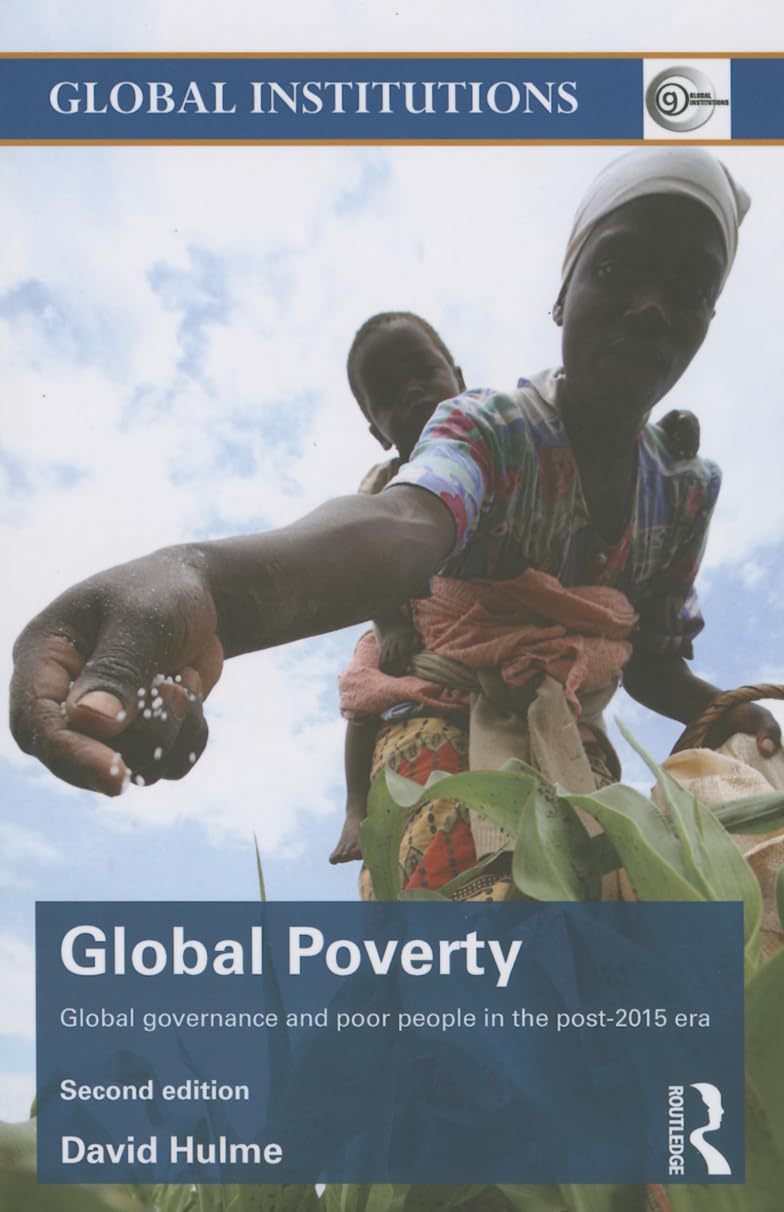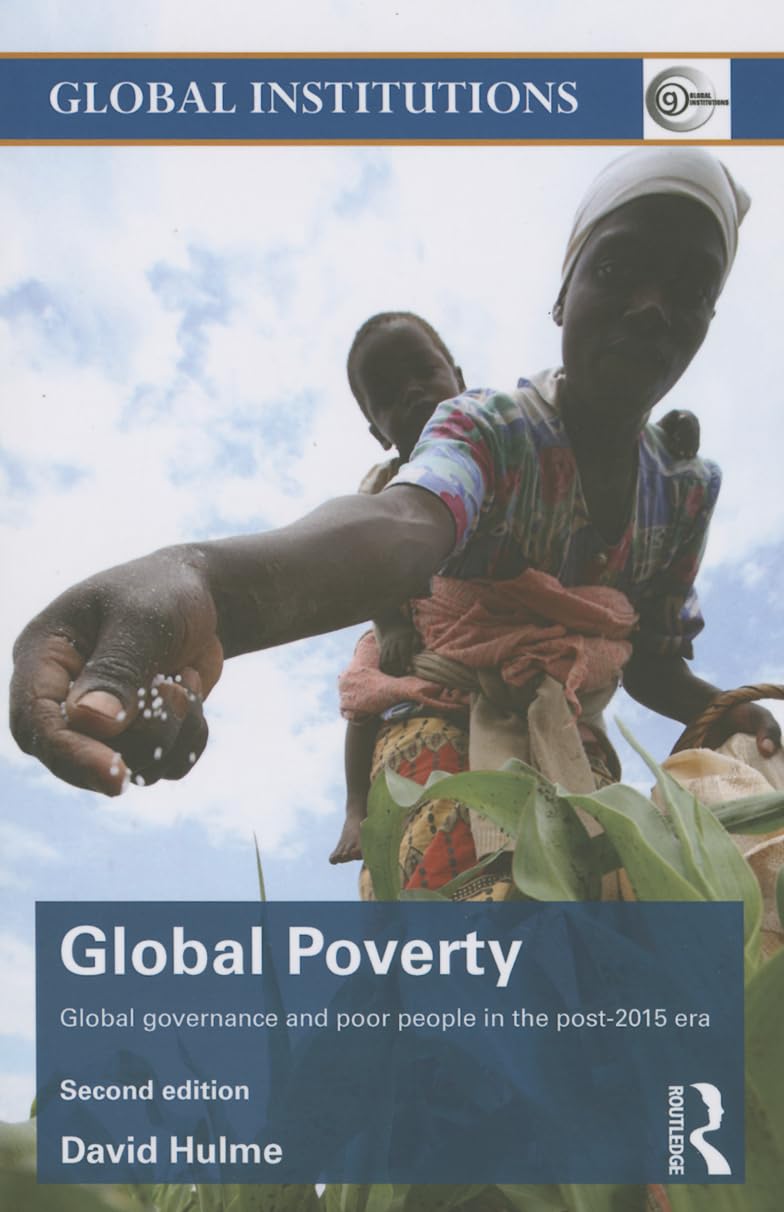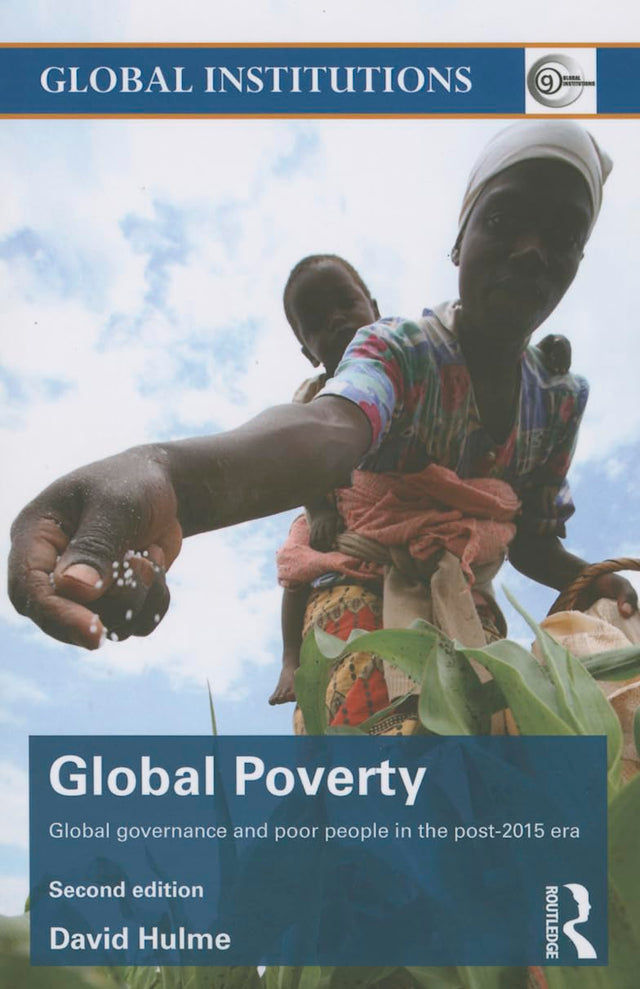Global Poverty: Global governance and poor people in the Post-2015 Era (Global Institutions)
Global Poverty: Global governance and poor people in the Post-2015 Era (Global Institutions) is backordered and will ship as soon as it is back in stock.
Couldn't load pickup availability
Genuine Products Guarantee
Genuine Products Guarantee
We guarantee 100% genuine products, and if proven otherwise, we will compensate you with 10 times the product's cost.
Delivery and Shipping
Delivery and Shipping
Products are generally ready for dispatch within 1 day and typically reach you in 3 to 5 days.
Book Details
-
Publisher: Routledge
-
Author: David Hulme
-
Language: English
-
Edition: 2
-
ISBN: 9781138826823
-
Pages: 342
-
Cover: Paperback
About the Book
In Global Poverty: A Global Issue, David Hulme provides an in-depth analysis of one of the most pressing challenges of our time: global poverty. Charting the rise of global poverty as a priority issue, Hulme reflects on how it was once marginalized in international discussions in favor of issues like trade policy, peace-making, and geo-political concerns. The book explores the changing focus of global governance, which has shifted towards newer challenges such as terrorism, climate change, and resource access, often at the expense of tackling poverty.
This second edition brings vital updates to the discussion, including a thorough evaluation of the post-2015 Development Agenda and the Rio+20, as well as an exploration of how countries like Colombia and Brazil are advancing a sustainability agenda. These nations provide a Southern perspective that challenges the traditional focus on aid by OECD nations in the post-MDG era. Additionally, the book examines the growing influence of BRIC countries and emerging regional powers, such as Indonesia, Turkey, and South Africa, in shaping the development landscape, while highlighting the stagnant state of global institutions. Another key update includes an exploration of Russia’s limited engagement in the global development agenda.
Offering critical insights into global poverty through the lens of global institutions, this comprehensive volume is an essential resource for students and scholars of international relations, development studies, and international political economy. Hulme’s thorough and accessible analysis makes this book an invaluable contribution to the ongoing conversation about poverty, development, and the changing dynamics of global politics.





